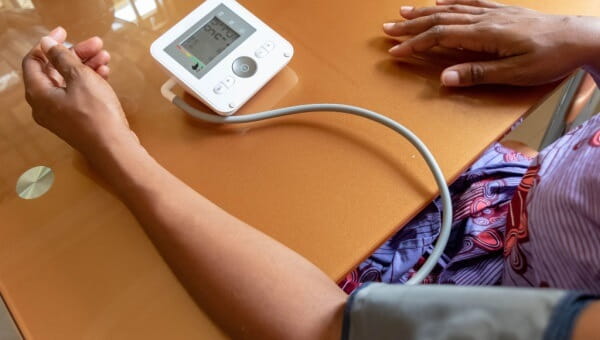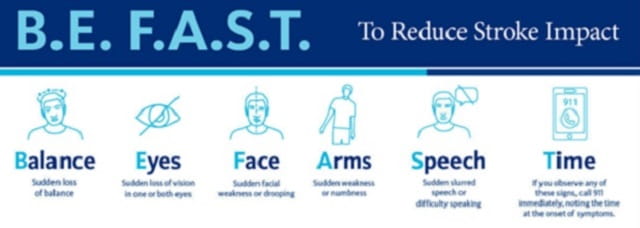Your Heart is in Good Hands Here
Women take on so much throughout their lives and sometimes they can feel like the weight of the world is on their shoulders. They are working in demanding jobs, raising children, pursuing careers, taking care of family members, and the list goes on. Often, they put the health of their loved ones above their own, ignoring their own wellbeing, and missing symptoms that can lead to serious health issues and ultimately, fatalities.
Our mission at BayCare is to help women prioritize their own health and enjoy their longevity. We are here to listen and focus on you while providing exceptional care from the moment you schedule your appointment. We have got you!
Why You Need to Listen to Your Heart
Almost as many women as men are affected each year by heart disease in the United States, in fact it is the leading cause of death for women in the US*. However, the symptoms for women may be different. Heart disease describes a range of conditions that affect your heart. These include:- Blood vessel disease, such as coronary artery disease
- Heart rhythm problems (arrhythmias)
- Heart defects you're born with (congenital heart defects)
- Heart valve disease
- Disease of the heart muscle
- Heart infection
What are the symptoms of heart disease?
Although some women have no symptoms, others may have:- Angina (dull and heavy or sharp chest pain or discomfort)
- Pain in the neck, jaw, or throat
- Pain in the upper abdomen or back

- Nausea
- Vomiting
- Fatigue
Am I having a heart attack?
Call 911 if you think you might be having a heart attack. A real heart attack may look and feel very different for women. Women are more likely to have nontraditional symptoms of heart attack than men. And women are also more likely to have silent heart attacks.

High Blood Pressure and Heart Disease in Women
High blood pressure is a condition that makes the heart work harder than normal. And left untreated, it scars and damages your arteries and can lead to heart attack, stroke, kidney failure, eye damage, heart failure and fatty buildups in the arteries, called atherosclerosis.
Alarmingly, nearly half of all adults with high blood pressure are women. In fact, women that are just 20 pounds or more overweight, have a family history of high blood pressure or have reached menopause are known to increase a woman’s risk.
While high blood pressure isn't directly related to gender, throughout a woman’s life, pregnancy, pregnancy prevention (birth control) and menopause can increase the risk of developing high blood pressure.

Did you know?
A rare but dangerous pregnancy condition is postpartum cardiomyopathy (Peripartum cardiomyopathy (PPCM), also known as postpartum cardiomyopathy. It is a form of heart failure that happens during the last month of pregnancy or up to five months after giving birth. Cardiomyopathy literally means heart muscle disease.
PPCM is rare in the United States, Canada, and Europe. About 1,000 to 1,300 women develop the condition in the U.S. each year. PPCM is much more common in some countries and may be related to differences in diet, lifestyle, other medical conditions or genetics.

Stroke
Stroke is the fifth leading cause of death for women.1 In the United States, 1 in 5 women between the ages of 55 and 75 will have a stroke.2 Why such a staggering number? Many women do not know their risk of having a stroke.

What puts women at risk for stroke?
High blood pressure, also called hypertension, is a main risk factor for stroke.
More than 2 in 5 women have blood pressure greater than or equal to 130/80 mm Hg or are taking medicine to control their blood pressure.4 Only about 1 in 4 of those women have their blood pressure controlled to below 130/80 mm Hg.4
- Stroke risk increases with age, and women live longer than men.
- Women also have unique risk factors for stroke, including:
- Having high blood pressure during pregnancy.
- Using certain types of birth control medicines, especially if they also smoke. About 1 in 9 women smoke.
- Having higher rates of depression.
Why are African American women at higher risk for stroke?
- Stroke is a leading cause of death among African American women, who are more likely to die from a stroke than non-Hispanic White women or Hispanic women in the United States.2 African Americans have the highest rate of death due to stroke among all racial and ethnic groups.
- Almost 3 in 5 African American women are diagnosed with high blood pressure (greater than or equal to 130/80 mm Hg), which is a much higher proportion than White women.
- African American women are diagnosed with higher rates of obesity (nearly 3 in 5) and diabetes (more than 1 in 8), conditions that increase the risk for stroke, than White women.
- Eating too much salt or sodium can raise your blood pressure, putting you at higher risk of stroke.
- Sickle cell disease, a common genetic disorder in African Americans, can lead to a stroke. About 1 in 365 Black or African American babies are born with sickle cell disease.
- Smoking greatly increases stroke risk. About 1 in 8 African American women smoke.
Why are Hispanic women at risk for stroke?
- Stroke is the fourth leading cause of death for Hispanic women.
- High blood pressure is one of the main risk factors for a stroke. More than 1 in 3 Hispanic women have blood pressure above 130/90 mm Hg.7.
- People with diabetes are at higher risk of stroke. More than 1 in 9 Hispanic women have diabetes—including many who don’t know they have the disease.9 Among adults of Hispanic origin, diabetes is most common in people of Mexican and Puerto Rican ancestry.
- Obesity increases the risk of stroke. About half of Hispanic women have obesity.
How can I prevent stroke?
High blood pressure is one of the main risk factors for a stroke. Measure your blood pressure regularly to help your health care team diagnose any health problems early. Most strokes can be prevented by keeping medical conditions under control and making healthy lifestyle changes.
Work with your health care team: Talk to your doctor about your chances of having a stroke, including your age and whether anyone in your family has had a stroke. Get other health conditions under control, such as diabetes or heart disease.


